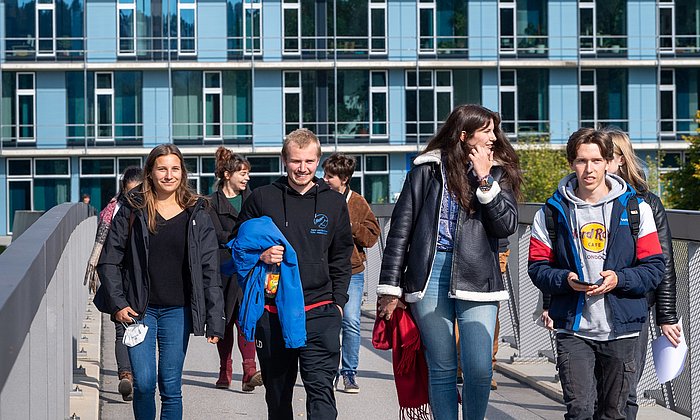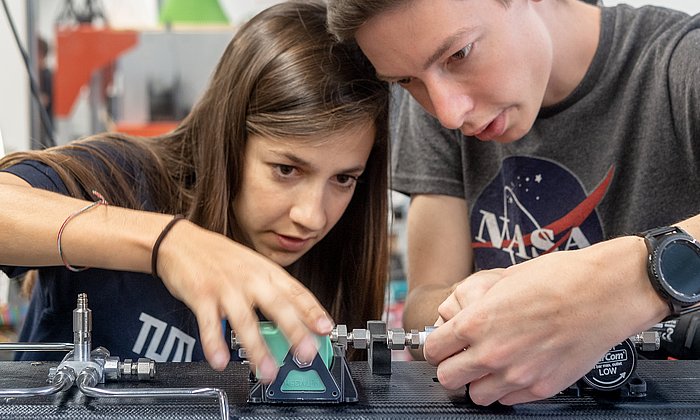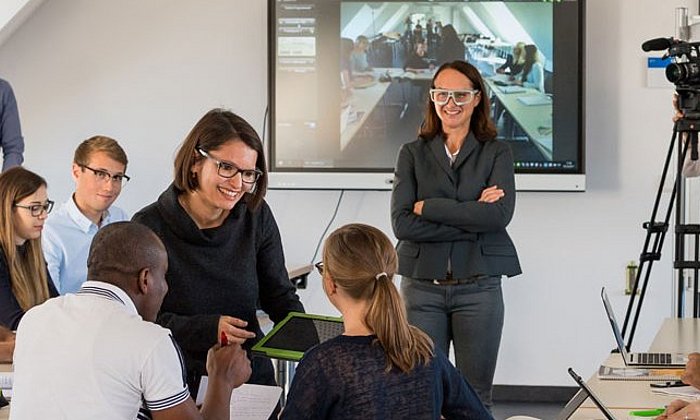A new Bachelor's program and two new Master's degree programs this winter semester
New degree programs at TUM

Computer technologies offer new approaches to dealing with increasingly dense metropolitan centers and the rising complexity of infrastructures. In the Master of Information Technologies for the Built Environment degree program, set to begin in the TUM School of Engineering and Design's winter semester, students learn to analyze digital data and information and to render it usable. This gives rise to new perspectives, technologies and methodologies for making construction projects ecologically and economically sustainable at the interfaces between architecture, civil engineering and geodesy.
The importance of digital and physical scientific expertise is constantly growing in academic education and teacher training. Beginning in the coming semester at the TUM School of Social Sciences and Technology, prospective teachers can qualify themselves to teach in a university-track school ("Gymnasium") with the Bachelor in Teaching at Academic Secondary Schools – Scientific Education degree program, where the subject combination Informatics/Biology will specifically prepare them to convey these focus areas.
Of course, learning doesn't stop after secondary school and university studies. Just the opposite: Lifelong continuing education is absolutely necessary in order to take advantage the dynamic developments of new technologies and advances. In the winter semester the TUM School of Social Sciences and Technology will launch the Master in Vocational Education and Innovation degree program, designed to accompany a full-time occupation, for experts in professional training and continuing education. These experts use requirement-driven qualification programs to reinforce the skills of employees while at the same time strengthening the ability of companies to encounter the challenges of the Digital Transformation.
Beyond the boundaries of disciplines
And there will be more than just new curricula available to students starting this fall: The TUM School Transition is also moving ahead, as TUM continues to drive its research and teaching reforms at the structural level as well. The Departments of Mathematics, Physics and Electrical and Computer Engineering will consolidate to form the TUM School of Computation, Information and Technology (CIT), while the Departments of Chemistry and Physics will unite as the new TUM School of Natural Sciences (NAT).
The new School structures will guarantee completely up-to-date teaching and didactics which focus less on traditional subjects and much more on future-oriented skill profiles. This lets students develop highly individualized portfolios based on thorough specialized knowledge beyond the boundaries of disciplines and looking towards the future.
An overview of all 170 degree programs at TUM can be found here.
Technical University of Munich
Corporate Communications Center
- Konstantin Götschel – TUM Center for Study and Teaching
- goetschel@zv.tum.de
- presse@tum.de
- Teamwebsite



